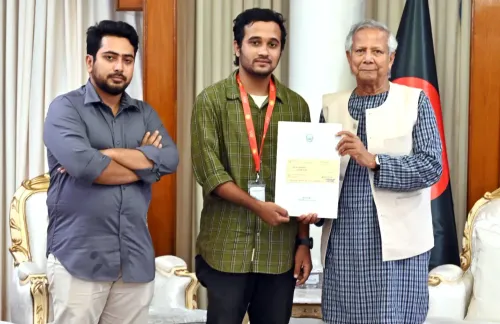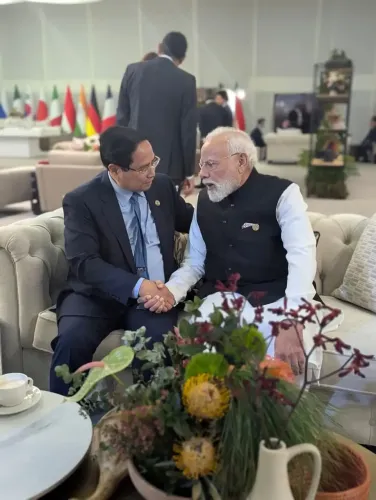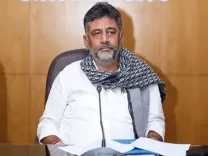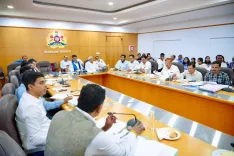Why Did the US State Department Stay Silent on India's Reaction to Trump's Tariff Threat?
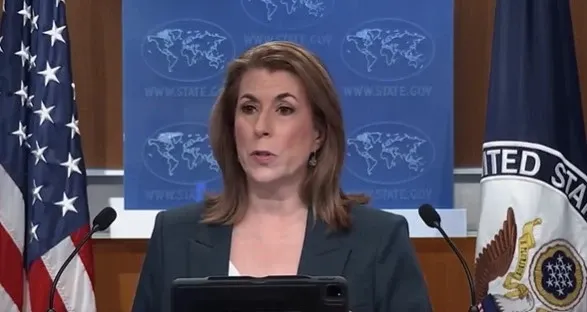
Synopsis
Key Takeaways
- US State Department's silence on India's tariff response raises diplomatic questions.
- Trump's tariffs target India's purchases of Russian oil.
- India's commitment to safeguard its economic interests remains strong.
- Nikki Haley's warning highlights the risks of strained US-India ties.
- Geopolitical complexities influence international economic strategies.
New York, Aug 6 (NationPress) US State Department Spokesperson Tammy Bruce opted not to comment on India's response to President Donald Trump's threats of imposing punitive tariffs related to the purchase of Russian oil. When questioned by a reporter regarding External Affairs Minister S Jaishankar's remarks, she stated, "I will not characterize or remark on another nation's comments about what they will or will not do."
With a hint of irony, she added, "I can barely do that here." However, she criticized India's oil acquisitions, asserting that Trump "is the guiding hand, and when it comes to what Russia is doing and those nations facilitating this war on Ukraine, it will be up to President Trump to decide how to respond."
Bruce was addressing reporters during a routine briefing after Trump had announced plans to impose a significant tariff on India within 24 hours for purchasing Russian oil and reselling products derived from it, in addition to the 25 percent tariff he had declared the previous Friday.
Trump alleged, "They are buying Russian oil and fueling the Russian war machine."
In a subtle critique of the tariff threat, Jaishankar stated on Monday, albeit without mentioning Trump, "We live in complicated and uncertain times. Our collective desire is to see a fair and representative global order, not one dominated by a few."
The External Affairs Ministry remarked, "Like any major economy, India will take all necessary measures to safeguard its national interests and economic security."
It also criticized the hypocrisy of singling out India, highlighting that the European Union's trade with Russia was valued at $67.5 billion, while Washington continued to purchase uranium, palladium, fertilizers, and other chemicals.
Nikki Haley, a former US cabinet-level representative to the UN who ran against Trump for the Republican presidential nomination, also mentioned the unfair singling out of India, warning that it could "burn" relations with the "strong ally" New Delhi.
On X, she wrote, "India should not be buying oil from Russia. But China, an adversary and the leading buyer of Russian and Iranian oil, received a 90-day tariff pause. Don't give China a pass and risk a relationship with a strong ally like India."
Explaining the rationale behind Trump's tariff strategy, referred to formally as secondary tariffs, Bruce stated, "Trump has many tools at his disposal."
"This is one of them he has invested a great deal in and will continue to use regarding wars and conflicts worldwide to halt them," she noted.
"As a businessman, he prefers to utilize methods that can effectively influence countries, and it's all about the economy," she concluded. "And that's a very specific approach that every country can comprehend."

